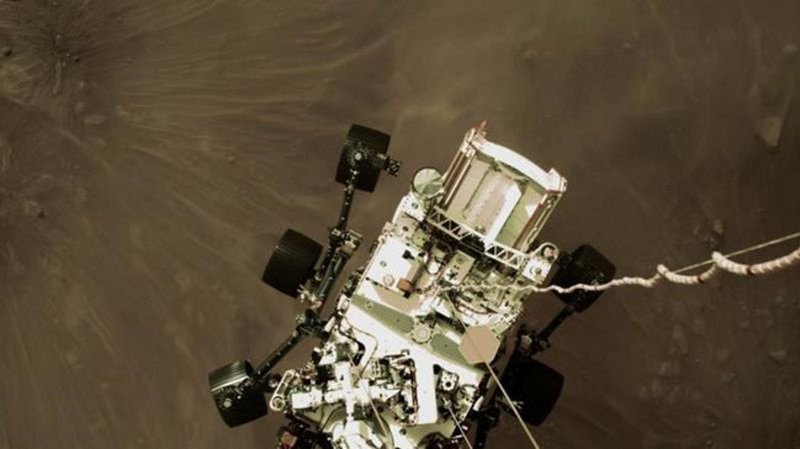
Mars landing team ‘awestruck’ by photo of descending rover
CAPE CANAVERAL, Fla. — The world got its first close-up look at a Mars landing on Friday, as NASA released a stunning picture of its newest rover being lowered onto the dusty red surface.
The photo was released less than 24 hours after the Perseverance rover successfully touched down near an ancient river delta, where it will search for signs of ancient life and set aside the most promising rock samples for return to Earth in a decade.
NASA equipped the spacecraft with a record 25 cameras and two microphones, many of which were turned on during Thursday’s descent.
The rover is shown in stunning detail just 6 1/2 feet (2 metres) off the ground, being lowered by cables attached to an overhead sky crane, the red dust kicked up by rocket engines. NASA promises more photos in the next few days and possibly also an audio recording of the descent.


